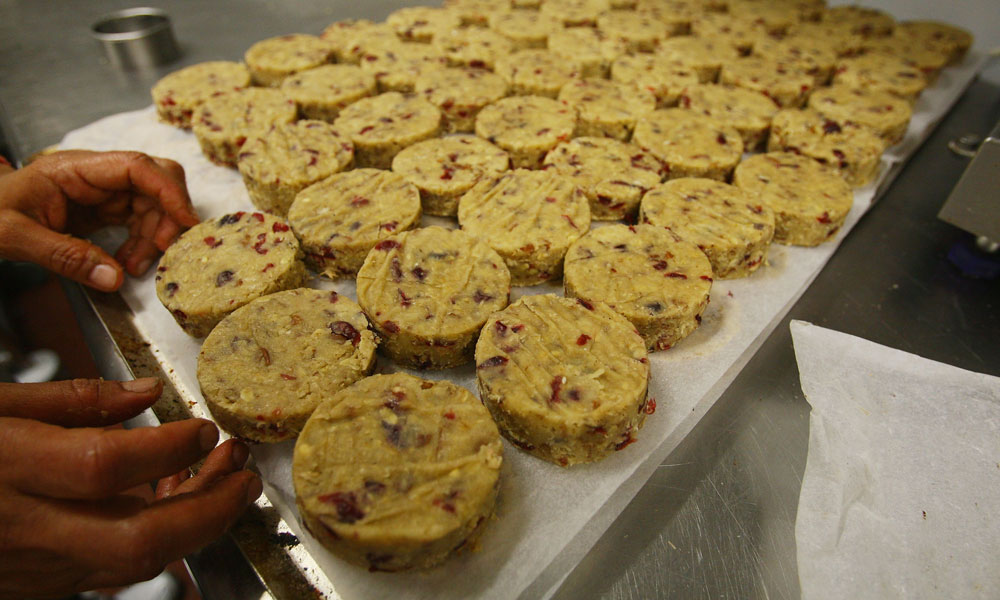
Bakers: FDA’s Trans Fat Ban Could Have “Unintended Consequences”
The American Bakers Association argues that the plan to reclassify partially hydrogenated oils as unsafe could harm the baking industry. It offers some alternatives to a ban.
Maybe the proposal needs a little more time in the oven?
A move by the Food and Drug Administration to ban trans-fat-containing partially hydrogenated oils has support from the medical community and comes after years of voluntary efforts by industry groups to self-regulate. But at least one food industry group says the proposal is half-baked.
[C]onsumption of trans fat in the U.S. has dramatically decreased and will continue to decrease as industry continues to develop alternatives for the remaining few, but difficult to replace, sources of trans fat.
The American Bakers Association said as much in comments on the FDA’s tentative plan to remove partially hydrogenated oils’ (PHOs’) “generally recognized as safe” (GRAS) classification, which would mean they could not be included as ingredients in processed foods without prior FDA approval. According to the association’s comments to the agency, a full ban goes too far.
“We believe that reducing consumption of trans fat in the U.S. population is an important public health goal, and ABA members’ voluntary efforts have resulted in extremely low levels of industrially produced trans fat in finished foods—lower than the levels presented by FDA” in its “tentative determination” that trans fats should not keep the GRAS classification, Lee Sanders, the group’s senior vice president for government relations and public affairs, wrote in the association’s comments to the FDA [PDF]. “Consequently, consumption of trans fat in the U.S. has dramatically decreased and will continue to decrease as industry continues to develop alternatives for the remaining few, but difficult to replace, sources of trans fat.”
Burden of Proof
ABA argued that the FDA had failed to prove that partially hydrogenated oils, which are difficult to remove from some baking products, are dangerous to the public at current consumption levels. The group noted that the FDA’s stance “is at odds with the [World Health Organization], Health Canada, and most other countries’ trans fat policies”—which it said are directed at all sources of trans fat, not just PHOs—and that other countries seek to dramatically reduce consumption rather than ban the oils.
“Withdrawing the GRAS status of one source of trans fat, therefore, is an extreme, unprecedented, and unnecessary approach and sets an unlawful standard for withdrawing the GRAS status of ingredients,” Sanders wrote.
Offering Alternatives
ABA offered a series of alternatives to a PHO ban. According to Food Navigator USA, the association said the FDA could
- change the rounding rule on trans fats to 0.2 grams per serving from the current 0.5 grams per serving.
- use its authority to “establish nutrient content claims for trans fat” and provide a science-based definition on what level of trans fat is safe or not safe.
- set a limit on the amount of trans fat in finished foods.
- allow certain uses of trans fat for which there may be no feasible alternatives to retain GRAS classification.
“Hydrogenation is a critical process to industry, especially to the baking industry, where solid fats are required for functionality, taste, texture, structure, and shelf stability,” Sanders wrote.
(iStock/Thinkstock)






Comments